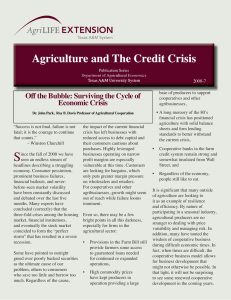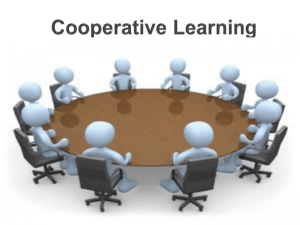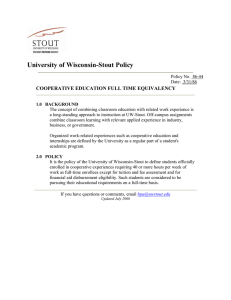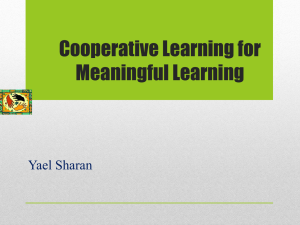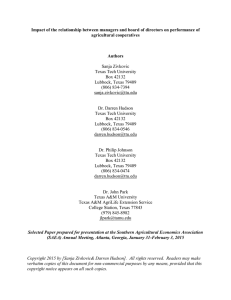Off the Bubble
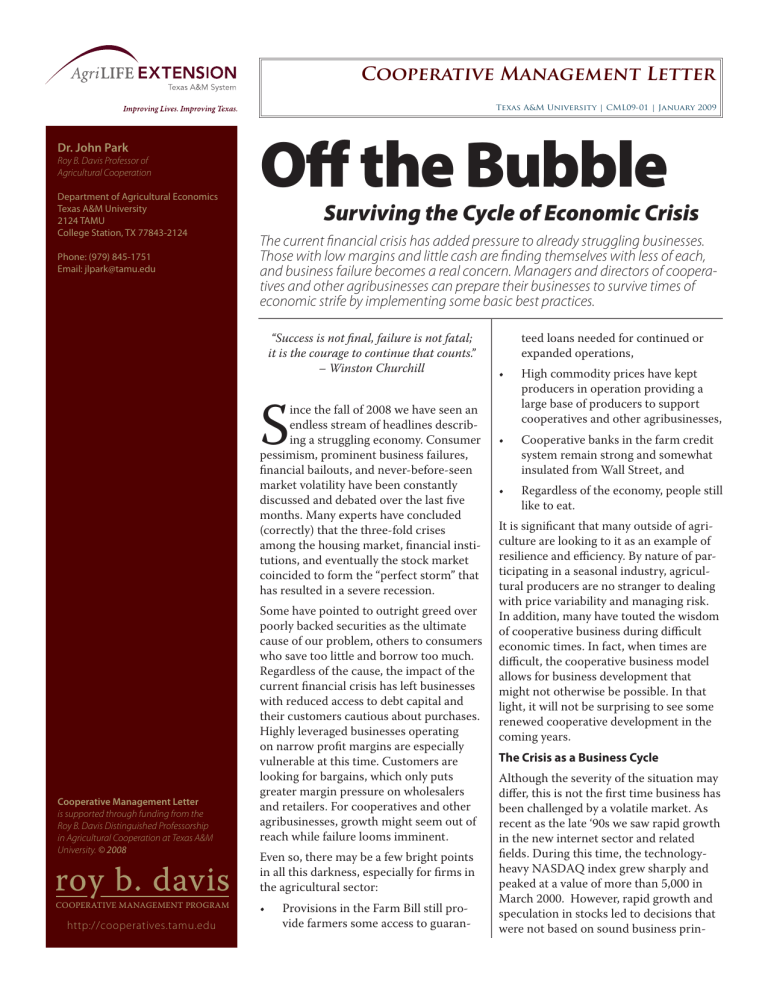
Dr. John Park
Roy B. Davis Professor of
Agricultural Cooperation
Department of Agricultural Economics
Texas A&M University
2124 TAMU
College Station, TX 77843-2124
Phone: (979) 845-1751
Email: jlpark@tamu.edu
Cooperative Management Letter is supported through funding from the
Roy B. Davis Distinguished Professorship in Agricultural Cooperation at Texas A&M
University. © 2008
roy b. davis
COOPERATIVE MANAGEMENT PROGRAM http://cooperatives.tamu.edu
Cooperative Management Letter
Texas A&M University | CML09-01 | January 2009
Off the Bubble
Surviving the Cycle of Economic Crisis
The current financial crisis has added pressure to already struggling businesses.
Those with low margins and little cash are finding themselves with less of each, and business failure becomes a real concern. Managers and directors of cooperatives and other agribusinesses can prepare their businesses to survive times of economic strife by implementing some basic best practices.
“Success is not final, failure is not fatal; it is the courage to continue that counts.”
– Winston Churchill
S ince the fall of 2008 we have seen an endless stream of headlines describing a struggling economy. Consumer pessimism, prominent business failures, financial bailouts, and never-before-seen market volatility have been constantly discussed and debated over the last five months. Many experts have concluded
(correctly) that the three-fold crises among the housing market, financial institutions, and eventually the stock market coincided to form the “perfect storm” that has resulted in a severe recession.
Some have pointed to outright greed over poorly backed securities as the ultimate cause of our problem, others to consumers who save too little and borrow too much.
Regardless of the cause, the impact of the current financial crisis has left businesses with reduced access to debt capital and their customers cautious about purchases.
Highly leveraged businesses operating on narrow profit margins are especially vulnerable at this time. Customers are looking for bargains, which only puts greater margin pressure on wholesalers and retailers. For cooperatives and other agribusinesses, growth might seem out of reach while failure looms imminent.
•
Even so, there may be a few bright points in all this darkness, especially for firms in the agricultural sector:
Provisions in the Farm Bill still provide farmers some access to guaran-
• teed loans needed for continued or expanded operations,
High commodity prices have kept producers in operation providing a large base of producers to support cooperatives and other agribusinesses,
•
•
Cooperative banks in the farm credit system remain strong and somewhat insulated from Wall Street, and
Regardless of the economy, people still like to eat.
It is significant that many outside of agriculture are looking to it as an example of resilience and efficiency. By nature of participating in a seasonal industry, agricultural producers are no stranger to dealing with price variability and managing risk.
In addition, many have touted the wisdom of cooperative business during difficult economic times. In fact, when times are difficult, the cooperative business model allows for business development that might not otherwise be possible. In that light, it will not be surprising to see some renewed cooperative development in the coming years.
The Crisis as a Business Cycle
Although the severity of the situation may differ, this is not the first time business has been challenged by a volatile market. As recent as the late ‘90s we saw rapid growth in the new internet sector and related fields. During this time, the technologyheavy NASDAQ index grew sharply and peaked at a value of more than 5,000 in
March 2000. However, rapid growth and speculation in stocks led to decisions that were not based on sound business prin-
Cooperative Management Letter | January 2009| 2 ciples. The dot-com bubble burst in March 2000 with the NAS-
DAQ falling more than 60% over the next year and bottoming out another year later for a 76% decline from its peak value
(the NASDAQ trades at about 1,600 today). That sounds fairly catastrophic and for some it was. However, out of this period we saw AOL purchase Time Warner, the world’s largest media company. We also saw the birth and survival of Amazon.com, eBay, and Google among others that today we consider some of the very best companies in their industry.
The point is that business, especially in a capitalist economy, tends to move in cycles. Times of economic crisis are also times of economic opportunity. There is always the potential that someone else is better able to derive value from available capital than you are. Whether it’s through a better business model, better management, or new technology, there are firms who are able to grow from (or even cause) the destruction of others.
Famed economist, Joseph Schumpeter, called this characteristic of capitalism “creative destruction” in his book, Capitalism,
Socialism, and Democracy (1942). In his words,
“The essential point to grasp is that in dealing with capitalism we are dealing with an evolutionary process. … Capitalism, then, is by nature a form or method of economic change and not only never is but never can be stationary” (pg. 82).
Change in itself is not bad; the question is “does my business keep pace with changes in the business environment?”
Getting off the Bubble
3.
4.
One thing that is guaranteed about our current economic crisis is that it will happen again. Is your business engineered to keep pace with the dramatic changes from the next downturn of the business cycle? To find out, consider the following questions:
1.
2.
Do you conduct an annual strategic planning session, and do you regularly consult your existing strategic plan?
Do you maintain adequate working capital compared to your sales and level of risk?
Do you actively manage your customer credit?
Do board members and management work within the confines of their respective roles?
5.
6.
Do you know what motivates your customers and what value they find in your products and services?
Does the board of directors faithfully execute its responsibility of “due diligence”?
If your answer to any of these questions is “no” or “I don’t know”, then your business may be the one on the bubble and ready for failure. Let’s visit each of these questions in greater detail.
Strategic Planning
Do you conduct an annual strategic planning session, and do you regularly consult your existing strategic plan?
Strategic planning is an essential exercise for any business. For a cooperative, it involves the board of directors taking a hard look at the status of the business relative to its competitors to determine the proper actions needed for long-term viability. Sometimes it involves hard decisions that might alter the very essence of the business model. Remember that strategic planning is a process not a product. It is a culture within a business that leads to constant adjustment ahead of changes in the business environment.
I have never been involved in a strategic planning session where the board and management did not come away feeling more confident in their business. For successful strategic planning, get the board members out of the boardroom and away from the business, invite presentations from your banker, auditor, and industry professionals, and don’t be afraid to dream big.
Working Capital
The NASDAQ Composite Index between 1994 and 2007 showing the dot-com bubble. The growth and contraction due to speculation in overvalued assets against the wisdom of sound business principles is reminiscent of today.
Do you maintain adequate working capital compared to your sales and level of risk?
Working capital is the lifeblood of a business. Your working capital represents how much cash you have on hand
Cooperative Management Letter | January 2009 | to fund daily operations. It must be sizable enough to cover short-term debt and upcoming operational expenses. But that’s not all. Working capital also can represent the firm’s ability to withstand disaster or benefit from opportunity. Many cooperatives and agribusinesses are small to medium sized firms dependent on debt capital (loans) for growth. That can be okay when done with purpose, but in a highly seasonal industry it is something like tying one hand behind your back. You can still manage to protect yourself with the other hand. But if you allow working capital to be depleted, you are tying the other hand behind your back as well, and an unexpected stumble
(like crop loss to hail or drought) could leave you flat on your face. If your business is carrying debt, your banker will show a keen interest in your working capital. Most likely, current bank covenants are somewhat strict in this regard. If you are trying to lower your working capital needs, focus on increasing your inventory turnover, decreasing risk, and diversifying product and service offerings.
Customer Credit
Do you actively manage your customer credit?
Cooperatives are especially guilty of allowing customers to build up tremendous lines of credit with the argument that members need the credit and might not otherwise patronize the business. Thinking of this another way, the cooperative is providing an unsecured loan to its customer. No bank would extend a loan in this way, so why should you? What’s more, no loan is without cost, and if the customer is not paying the cost of the loan, then the business is paying that cost through lost interest and lost use of capital. Your business would be wise to set policies limiting the size of accounts receivable and defining the proper extension of credit. Such policies, even lenient ones, could include but not be limited to a credit application and letter of deposit from the applicant’s bank.
Board and Management Roles
Do board members and management work within the confines of their respective roles?
Let’s be clear, board members are responsible for strategic direction of the business, and management is responsible for carrying out that vision in the manner it deems most appropriate within the bounds of company policy. The general manager in particular is the one individual responsible for operations of the firm. That includes accounts receivable, payroll, personnel issues, and pricing. The board of directors is responsible for setting strategic objectives, general policy, distributing income, and protecting the wellbeing of the business. In addition the board is responsible for hiring one individual – the general manager. At times we find board members trying to control operations (like deciding what brand of equipment to buy) or managers who forget to listen to the needs and desires of members. Neither situation provides for decision making that will lead to long term success.
Customer Value
Do you know what motivates your customers and what value they find in your products and services?
In tough economic times it’s easy to cut marketing expenses or cancel plans for expansion. This might be justified, however don’t mistake reduced expenses for gains in efficiency.
Some of those dollars are generating greatly needed income. A more prudent approach is to reassess what adds value for your customers. For a cooperative business, you must also consider if there is value in ownership. The cooperative retains a portion of income that has been allocated to an owning member to use as equity capital. This is good – every business needs this equity to fund future growth. However, if you return that equity without interest and without creating anything of value, members will take their business somewhere else. Growth for the sake of growing is not sustainable.
Due Diligence
Does the board of directors faithfully execute its responsibility of
“due diligence”?
Board members are obligated to act in the best interest of the corporation and its shareholders. Personal agendas have no place in the boardroom. Board members are responsible for hiring the general manager, hiring an auditor, holding an annual meeting, entering into contracts and obligations including the borrowing of money, distributing dividends, amending bylaws as necessary, and perhaps most important, providing oversight to management. Directors are responsible for understanding the complete operation and structure of their business. They are ultimately responsible for the use of corporate assets and funds. Therefore, it is their right to ask direct and pertinent questions regarding the use of such assets, and to receive timely, detailed answers. Furthermore, it is their right to receive these answers in consultation with objective 3rd party professionals when deemed necessary. They are the champion of the shareholders and protector of business longevity.
The current financial crisis is difficult and it won’t be the last.
However, times of economic uncertainty can be survived by a business that has adequately prepared. The practices outlined in this article will help your business thrive during good times and bad.
Educational programs of Texas Cooperative Extension are open to all people without regard to race, color, sex, disability, religion, age, or national origin.
Issued in furtherance of Cooperative Extension Work in Agriculture and Home Economics, Acts of Congress of May 8, 1914, as amended, and June 30, 1914, in cooperation with the
United States Department of Agriculture, Edward Smith, Director, Texas Cooperative Extension, The Texas A&M University System.
